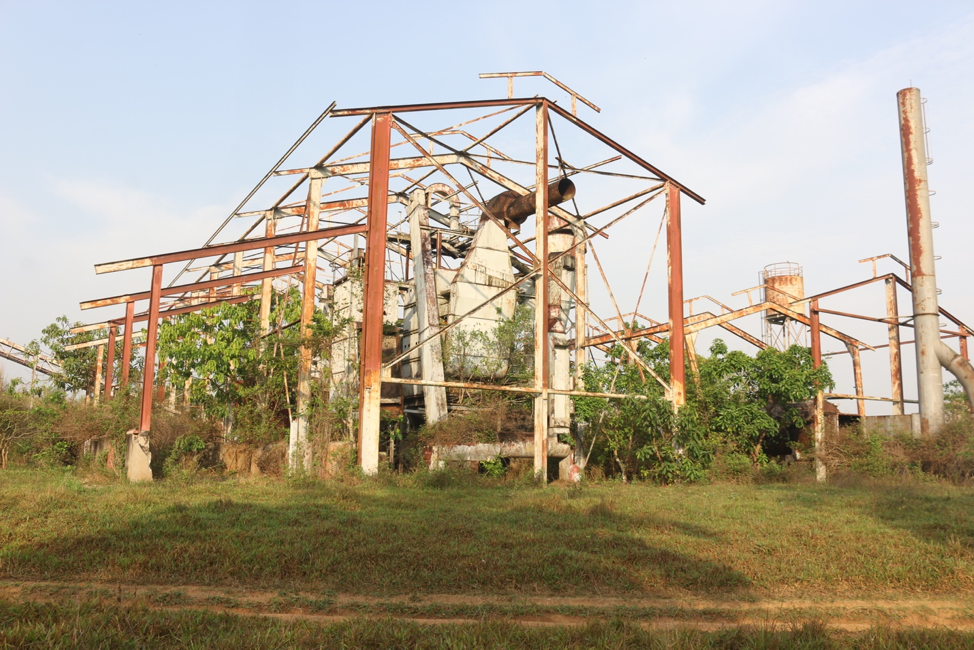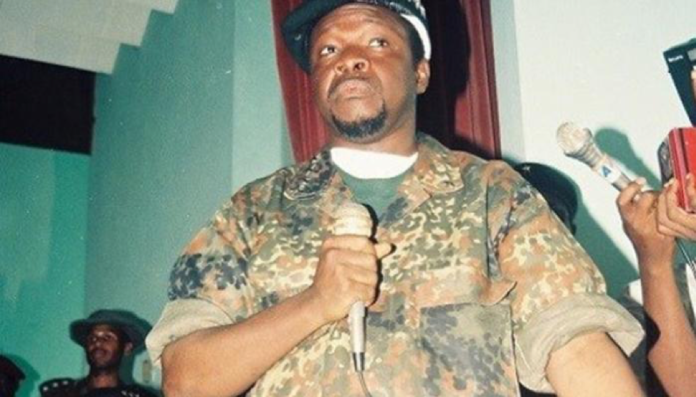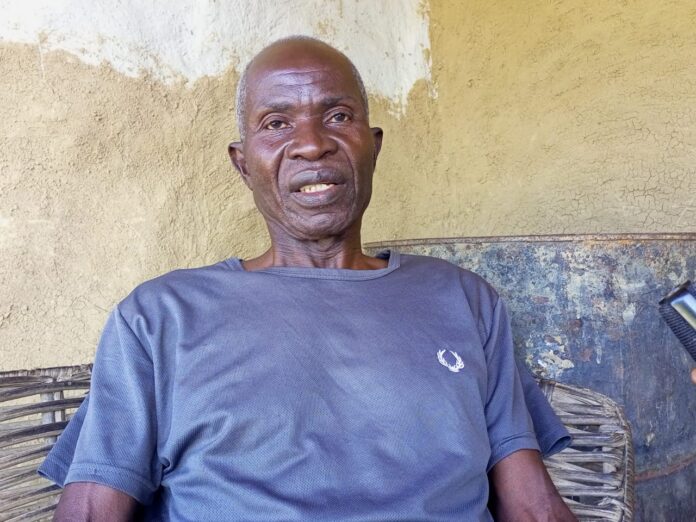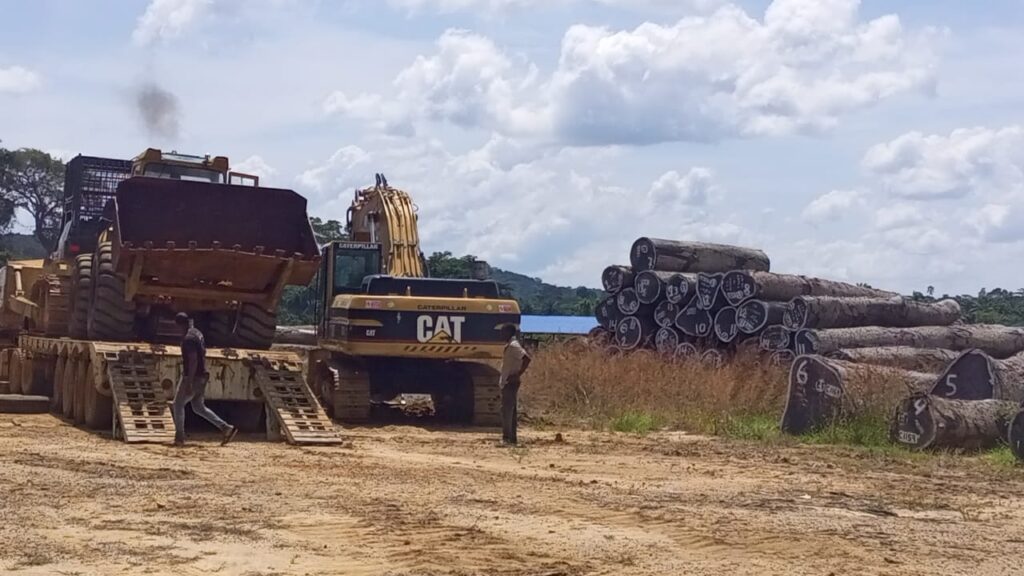Top: EX-ULIMO leader Alhaji G.V. Kromah
By Varney Kamara
FOYA, Lofa County – Farmers who experienced atrocities allegedly committed by the United Liberation Movement of Liberia for Democracy (ULIMO) are not happy that Alhaji Kromah, the group’s founder, died without facing justice.
ULIMO killed the husband and a son of Hawa Nyonkor, a farmer and resident of Menigesua, when rebels of the warring faction seized Foya in June 1993. They burned down her family’s rice kitchen and looted their cattle.
“I would have loved him to answer some questions [in a courtroom] before he died,” Nyonkor told The DayLight about Kromah, who died last week after a protracted period of illness aged 69.
Farmers were the most common of ULIMO’s victims. Rebels belonging to this faction looted their produce, burned villages, and forced them to head-carry loads on long distances to the Guinea border. Those who refused or became tired were killed, locals said. Two ex-generals of ULIMO—Mohammed Jabbateh and Alieu Kosiah—are in prison for crimes they committed during the Liberian Civil War (1989-2003) including murder, looting and forced transport.
Locals blamed ULIMO for the destruction of most of the infrastructure in Foya, Kolahun, Voinjama, including farmers’ warehouses, powerhouses, and a gigantic palm oil mill in Foya, operated by the Liberian Produce Marketing Corporation. The destruction of the region made it lose its breadbasket status, something it is still recovering from today.
Farmers The DayLight interviewed expressed frustration Kromah did not account for the crimes the group allegedly committed.
“I did not know Kromah in person, but I would have loved to face him in court for the bad things he did,” said Verseline Ndopa, a farmer who witnessed ULIMO’s looting in Foya.
“Kromah will be remembered as one of those who brought war that destroyed this country,” said Moses T. Fayia, general manager of Intofawor Farmers Multipurpose Cooperative (IFMC), Liberia’s oldest and largest with a member of 4,000 farmers.
“My only regret is that he is no more alive to answer for crimes he committed,” Fayia added.

ULIMO was formed in May 1991 in Sierra Leone by runaway soldiers of the Armed Forces of Liberia (AFL) and Mandingo refugees. A precursor to the formation of the group was the killings of more than 200 people in the town of Barkedu in Quardu-Gboni District by the National Patriotic Front of Liberia (NPFL), led by future President Charles Taylor. Taylor’s forces had accused Mandingos of siding with the AFL under the command of the late President Samuel K. Doe.
Throughout its existence, ULIMO mainly rivaled Taylor’s forces for Lofa and the mineral-rich western parts of the country. By the time the group was disbanded in 1997, it had committed 11,564 war crimes, or seven percent of all the crimes the Truth and Reconciliation Commission (TRC) heard. When the group split in 1994, Kromah’s ULIMO-K faction committed 6,079 or four percent of all the crimes, according to the TRC. In 2009, the TRC recommended Kromah, Taylor, Doe (posthumously) and the heads of all warring factions for prosecution. Kromah vehemently denied any wrongdoing, telling the TRC in 2007 ULIMO only killed its own members when the group split.
However, more than 12 years after the TRC report, Liberia has still not established war crimes. Jabbateh is in jail for 30 years in the United States for immigration fraud and perjury in connection to the war in Liberia. Former NPFL spokesman, Thomas Woewiyu, who died in a Philadelphia prison in 2020 of coronavirus, was also convicted in the United States for immigration crimes linked to the war. Kosiah is serving a 20-year term in Switzerland over war crimes under universal jurisdiction, which allows a country to try residents over offenses they committed on foreign soil. Chuckie Taylor is serving a 97-year sentence in the United States for murder and torture in Liberia. Former President Taylor’s 50-year prison term is for crimes he committed in Sierra Leone.
Kromah was the fourth former rebel leader to have died without facing prosecution. Doe died in 1990, Francois Massaquoi of Lofa Defense Force 2001 and Roosevelt Johnson of ULIMO-J 2004. That means Prince Johnson of the Independent National Patriotic Front of Liberia (INPFL), George Bolley of the Liberia Peace Council (LPC), Sekou Conneh of the Liberian United for Reconciliation and Democracy (LURD), and Thomas Yaya Nimely of the Movement for Democracy of Liberia (MODEL) are the only former rebel leaders alive to be prosecuted.
War crimes court campaigners say time is running out for the court.
“There’s no justice for the people of Liberia,” former TRC commissioner Massa Washington told the BBC.
“It’s a loss of hope for both victims and human rights campaigners,” said Adama Dempster, head of the Civil Society Human Rights Platform in an interview with The DayLight. “This should claim the government’s attention.”
This story is a part of The DayLight’s Human Rights Reporting Series.


![IMG_0583[2]](https://thedaylight.org/wp-content/uploads/2022/01/IMG_05832-696x522.jpg)

